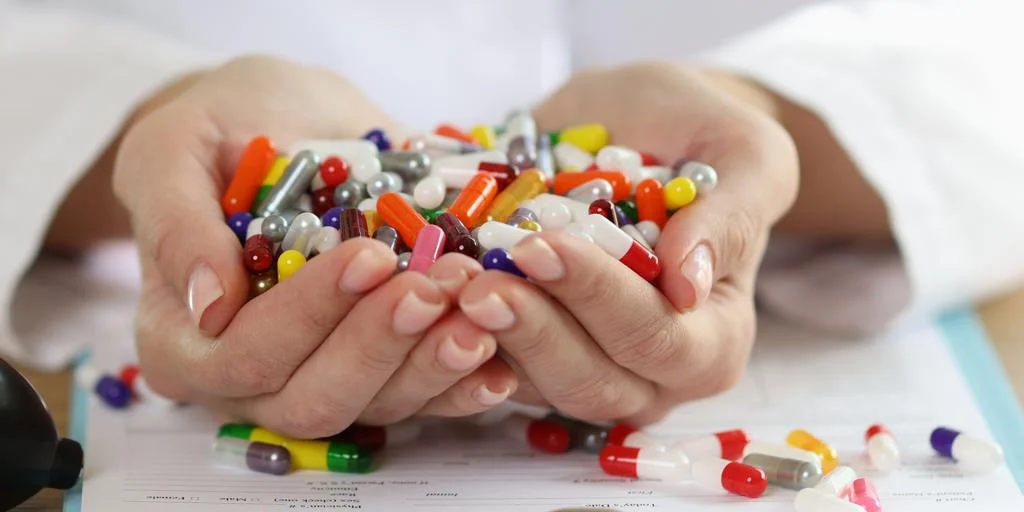
My paternal grandmother was about 65 years old when I was born. I always remember her putting it on her pharmacy bag with medicines for blood pressure, Parkinson’s disease, and other stories. I imagine like many of my grandparents in the ’90s. … There was a time when people used to take medicine every day if they had a chronic illness, but not if they didn’t.
Thirty years later, the average life expectancy in our country has reached 84 years, and the goal is not just to live longer, but to reach the best possible health. And all of this happens at a breakneck pace. In the quest for the “Holy Grail” of eternal youth and total happiness, supplements have become a religion. There are commercially available tablets and powders that promise the answer to every need. Feel more energized, keep your skin young, sleep better, get oily joints, reduce anxiety, gain muscle, prevent disease, and more.
Is it worth it? According to the opinions of experts consulted for this report, there are so far no clinical trials supporting the long-term consumption of these types of products in healthy people for health promotion or anti-aging purposes.
Nevertheless, in recent years supplements have become more sophisticated and are becoming more and more popular. Is there anyone who doesn’t know someone who incorporates supplements into their daily life? Collagen, Magnesium, Omega 3, Vitamin D, Protein, Melatonin or plants etc.
According to a study conducted by the Organization for Consumers and Users (OCU), consumption of dietary supplements has increased by 16 percentage points in just four years. A survey conducted by the Organization for Consumers and Users (OCU) found that 58% of consumers have already taken some kind of supplement in the past 12 months, compared to 42% who took one in 2021. The most popular are those made from vitamins (85%), proteins (53%), probiotics (45%), minerals (43%), essential fatty acids (38%), and amino acids (21%). OCU attributes the increase in intake not only to increased interest in health care, but also to increased online advertising of such products, especially through social networks.
So far this year, OCU has already reported 15 supplements to the Spanish Agency for Food Safety and Nutrition (AESAN) for claims of incompleteness, invention or unauthorizedness. Specifically, four claims are for the treatment of joint diseases, and another 11 claim to have a slimming effect.
what the evidence says
One of the most recent studies, a meta-analysis published in JAMA Network Open in June 2024, used data from more than 390,000 people in three different U.S. cohorts followed for nearly 20 years and concluded: People who take daily multivitamins do not see longevity benefitsThis is because they are not at a lower risk of death than those who do not consume these products.
Experts agree that there is scientific evidence for having a good birthday: following a Mediterranean diet, getting daily physical activity, maintaining a healthy weight, having friends, getting enough sleep, and avoiding toxins like tobacco and alcohol. However, it is difficult for us to comply with this. Dr. Jorge Soto, a dermatologist at the Spanish Group of Cosmetic Dermatology (GEDET), warns: “Someone is replacing something that works and requires important discipline with something that has no proof and changes every x number of months because they think it’s the best.” Experts recognize that promising molecules such as metformin, rapamycin, quercetin, spermidine, and curcumin are under study, but there are still no conclusive studies on dosage, safety, and response prediction to recommend anything generally to healthy people.
When it comes to our skin, one of the biggest skin aging factors is the sun, so dermatologists swear that in addition to a healthy lifestyle, you need to hydrate your skin and protect it from the sun to improve your appearance. «Moisturize, protect from the sun, and apply a retinoid at night And if you want, taking vitamin C before you hydrate in the morning can be a more effective habit than taking a supplement,” says Dr. Soto.
“Healthy people with no vitamin or micronutrient needs or deficiencies do not need supplements,” says Dr. Miguel Ruiz Canela, professor and head of the School of Preventive Medicine and Public Health at the University of Navarra.
For vitamin D
Although it is true that vitamin D deficiency has become more common among the population in recent years, it is not clear whether vitamin D supplementation is generally necessary. Last year, the Endocrine Society, which represents more than 18,000 scientists, physicians, educators, nurses, and students from 122 countries, published new clinical practice guidelines with recommendations regarding vitamin D levels. And the ruling runs counter to current trends.
Recently, a lack of this substance in the body has been linked to medical conditions such as some cancers, diabetes, cardiovascular disease, metabolic syndrome, infectious diseases and autoimmune diseases. Although there is not enough evidence for the protective role of vitamin D against these diseases, the reality is that more and more patients are concerned about their vitamin D levels and are looking to measure or directly supplement their vitamin D levels. However, the Endocrine Society believes that: Healthy adults under 75 are unlikely to benefit Do not exceed the daily intake recommended by the Institute of Medicine (600 IU (15 μg) per day) and testing for vitamin D levels is not required. Guidelines recommend that only children, pregnant women, adults over 75, and adults with high-risk prediabetes consume more than the recommended daily intake of vitamin D.
What you must remember is that The main source of vitamin D is the sunthis gives you 80% of what you need. 10-15 minutes of exposure a day without sunscreen is enough. The remaining 20% comes from food (cod liver oil, salmon, sardines, mackerel, tuna, mushrooms, egg yolks, whole milk).
Find the cause of discomfort
Dr. Miguel Ruiz Canela warns that taking supplements may mask the cause of your discomfort and may not address the root of the problem. “Every time I hear this kind of advice, ‘If you’re tired, take this supplement,’ I wonder if we’re skipping the previous step. Why are we tired? Because we’re getting less sleep. If sleep deprivation persists, supplements aren’t the answer. We need to take care of our sleep hygiene and look at what habits we have in the hours before bed. Now, what we’re talking about is lifestyle. First of all, you have to go to these bases and then consider whether there are specific motivations that, despite these changes, require some kind of supplementation at a certain level, with the guidance of a doctor or medical professional. But because there is no evidence, it cannot be recommended for the entire population, ”says the preventive medicine expert.
Along these lines, the Spanish Society of Neurology (SEN) recently warned that products and services aimed at people with chronic insomnia have increased sharply in recent years. “From supplements and pills presented as ‘natural’, miracle sprays and infusions, to special pillows, masks with built-in technology, meditation applications, electronic devices, glasses with light filters, colored lamps, and even weekend retreats aimed at ‘curing’ insomnia.” However, the reality is None of these products have been proven effective Dr. Celia García Maro, Coordinator of SEN’s Sleep-Wake Disorders Research Group, notes that insomnia is a complex clinical entity that requires correct diagnosis and treatment by a specialist.
In the opinion of Dr. Luis Canela, drug treatments that enable healthy aging on a global scale will not be available in the short or medium term. «What medicine fills the gap provided by social relationships? I take medicine to lose weight, but the benefits are even greater when I lose weight thanks to physical activity and diet. Physical activity can give you a sense of well-being, which can have a positive effect on the prevention and treatment of depression, for example. A pill can cover some parts, but other parts will always be more comprehensive,” he concludes.
The fact that many of these supplements are sold over the counter and can even be found in supermarkets does not mean that they are harmless. «Up to 31% of consumers take drugs without consulting a medical professional. “There is a health risk for pregnant and lactating women, people with liver or kidney diseases, or just people taking medications, due to possible interactions and unwanted effects,” warns OCU spokesperson Iliana Isverniceanu.
A preliminary study presented a few days ago at the American Heart Association’s 2025 Scientific Sessions shows that taking melatonin supplements for more than a year to treat insomnia may be associated with an increased risk of developing heart failure, increased hospitalizations, and increased mortality. Because this is an observational study, it cannot prove causation.
what is being researched
“There’s a lot of parascience sneaking under the concept of anti-aging. It’s very difficult to prove that something has an anti-aging effect. We haven’t demonstrated it with a drug. Imagine with a supplement,” says Salvador Massip, director of health science research at the University of Oberta de Catalunya (UOC) and professor at the University of Leicester, UK, where he directs the university’s cancer and aging laboratory.
Currently, the only things known to work are following a balanced Mediterranean diet, maintaining a healthy weight, getting regular exercise, not smoking or drinking alcohol, getting enough sleep, having an active social life, and controlling exposure to sunlight, as too much can age the skin, researchers recall. “Animal studies have confirmed that caloric restriction, metformin, and rapamycin are effective, but we don’t yet know if the same will happen in humans. “This is even more difficult because for a drug to be worth administering to healthy people, it must have zero side effects.” Experts believe that drugs for specific diseases associated with aging will arrive sooner than drugs to prevent aging as a biological process. “It doesn’t mean that we won’t have access to pills one day, but as long as we don’t have them, we have to try to live a healthy life,” Salvador Masip concluded.



